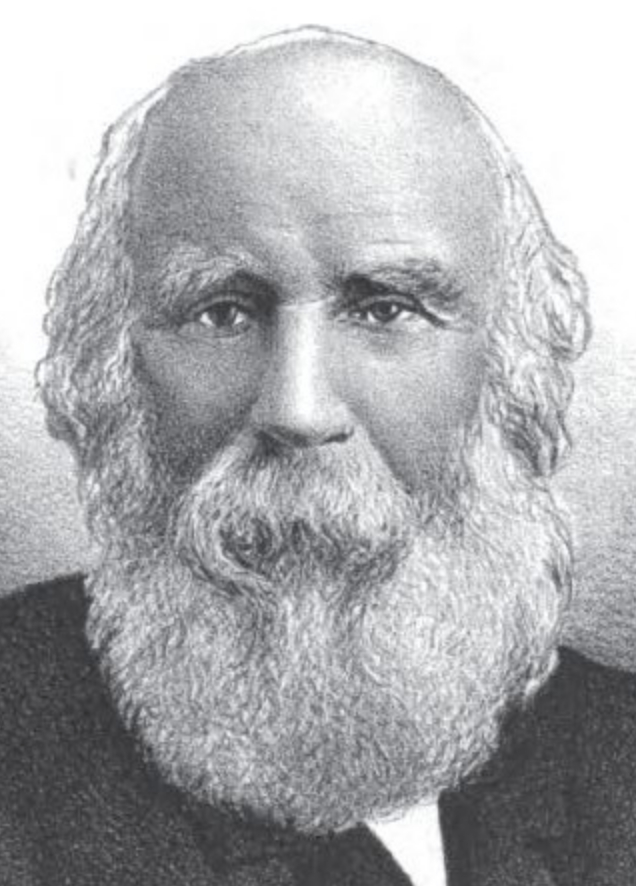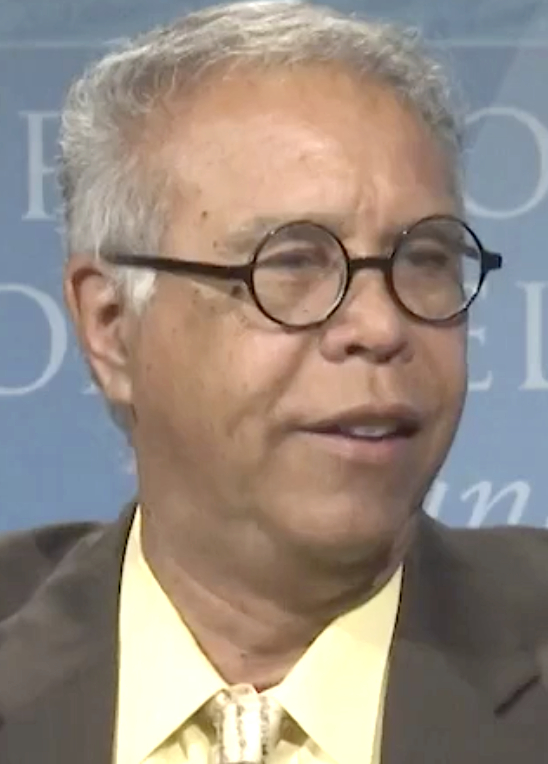October 8
James Fergus

On this date in 1813, James Fergus was born in Lanarkshire, Scotland. He became a U.S. citizen in 1839 and in 1862 he settled in what would become Montana. He became an influential politician, cattle rancher, miner and judge. Fergus began questioning his family’s Presbyterian religion as a child and his “freethinking agnosticism” grew stronger after he left Scotland at age 20. “I am better known for my unbelief than any man in the territory, except [fellow Montana pioneer] Granville Stuart,” Fergus wrote in an 1883 letter.
His freethought views were so strong that when a Christian relative offered him a large sum of money if Fergus would tell him that there could be a God, Fergus refused. Although he needed the money, he replied to his relative, “I have come to the conclusion that there is not enough money in Scotland to make me tell a lie.”
He held several political positions and founded Fergus County. His wife, Pamelia Dillin, whom Fergus married in 1845, was also a freethinker. They had four children: Mary Agnes, Francis Luella, Andrew and Lillie.
Fergus actively supported the separation of state and church. During his time as a Territorial Council member, he opposed using taxes to fund a chaplain for council meetings and in 1884 he opposed including God in the Montana Constitution. He wrote an editorial in 1888 for the Fort Benton Record vigorously opposing converting Native Americans to Christianity.
Fergus is quoted as saying in 1883, “The Christian religion brought about a long period of ignorance still known to us as the Dark Ages, during which thought was curbed, common education banished, and conscience given over to a rude, vulgar and ignorant priesthood. And whatever good Christianity may have done since, much of the degeneracy of mankind during this period must be laid at its door.” (All quotations from the Fergus County History and Genealogy website.) D. 1902
“Religion is declining, with no better proof than I am here today. Two hundred years ago, I would have been burned at the stake. What was considered heresay [sic] by our fathers is tolerated now. The hell that frightened us in childhood has vanished into space. Heaven is not in our geographies. Therefore, we see the old faiths losing their hold on the human mind.”
— Fergus, Society of Montana Pioneers speech, 1885 (quoted in the Lewistown News-Argus, 1994)
Hector Avalos

On this date in 1958, cultural anthropologist and biblical scholar Hector Avalos was born in Nogales, Sonora, Mexico. As a child, he attended the Church of God and gained some notoriety as a traveling Pentecostal evangelist before he was 10 years old and living with his grandmother in Arizona.
“We talked about sin and salvation. That you needed to be saved because Jesus died for your sins, and it will help you transform your life. We were against abortion. We were against premarital sex. We were against homosexuality. We were against rock ‘n’ roll.” He was determined to become a Christian missionary. (Iowa State Daily, Nov. 9, 2010)
After years of intense bible study to determine what was true and what wasn’t, he came to realize as a college freshman “that the arguments I made for Christianity were not the best, and that I could make just as excellent of an argument for other religions as I could for mine.” He had started studying to defeat any argument against his faith in God, but those studies led him instead to a faith in science and in family. Before long he was calling himself an atheist. (ibid., Iowa State Daily)
A diagnosis of a rare vascular disease called granulomatosis with polyangiitis and a dire prognosis that he had only two years to live forced him out of his anthropology degree program in 1978. He battled the disease and complications from it until he died 43 years later.
He returned to the University of Arizona in 1980 to complete his degree and then earned a master’s in theological studies from Harvard Divinity School and a Ph.D. in Hebrew Bible and Northwest Semitic philology from Harvard. Overcoming his physical challenges, he taught anthropology and religious studies at the University of North Carolina-Chapel Hill before joining the faculty at Iowa State University in Ames in 1993 to teach those subjects.
Avalos founded the U.S. Latino/a studies program at ISU, where he was 1996 Professor of the Year in 1996, and founded the Atheist and Agnostic Society at ISU three years later. “Prior to ’99, the word ‘atheist’ was like a dirty word,” he told the school newspaper in 2010. “It still is, actually. People were reluctant to call themselves atheists, so they would call themselves skeptics or freethinkers.” He told the paper his courses weren’t meant to “convert” students to atheism but to show them different perspectives. “A lot of these kids come here not even knowing there are other viewpoints. That in itself is an eye-opening experience for them.”
He published 10 books, including “Fighting Words: The Origins of Religious Violence” (2005), and most recently “The Reality of Religious Violence: From Biblical to Modern Times” (2019). In 2018 he received the inaugural Hispanic American Freethinkers Lifetime Achievement Award in Washington, D.C. He was inducted into the Iowa Latino Hall of Fame in 2019.
Avalos was an FFRF member and a guest on its radio show and TV talk show “Freethought Matters” (Oct. 16, 2019). He was married twice and was survived by his wife Cynthia after dying at age 62 of cancer. (D. 2021)
“One thing led to another, and I realized that I did not believe in Christianity or that the Bible was the word of God, or that the Bible had any kind of divine origin.”
— Interview, Iowa State Daily, Nov. 9, 2010
